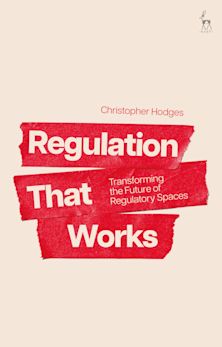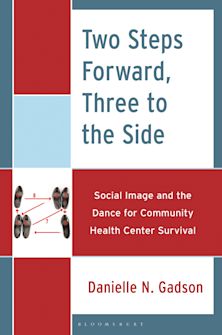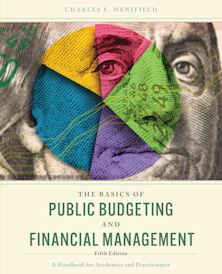- Home
- ACADEMIC
- Politics & International Relations
- Public Management, Administration and Policy
- A Sense of Inequality
This product is usually dispatched within 2-4 weeks
- Delivery and returns info
-
Flat rate of $10.00 for shipping anywhere in Australia
You must sign in to add this item to your wishlist. Please sign in or create an account
Description
We have a detailed picture of how inequality impacts people’s lives, but a much weaker sense of how people perceive, interpret and understand issues of inequality. What shapes people’s everyday understandings of inequality? How are understandings of inequality located in everyday concerns, moral values and principles of justice?
This book considers what provokes everyday ‘views’ or framings of inequality. It examines how different approaches can help us understand this process, drawing on a range of literatures, including social attitudes and perceptions research, class identities and neoliberalism, theories of the psychosocial, affect and the abject, social constructionism, social movements research, and pragmatism. The book examines how troubling social situations come to be regarded as inequalities, explores how they come to be understood as ‘class’, ‘gender’, ‘racial’ or other kinds of inequality, and considers how such inequalities come to be seen as susceptible to intervention and change.
Table of Contents
Chapter 2: Attitudes to Inequality
Chapter 3: Misrecognising Inequality
Chapter 4: Affective Inequality
Chapter 5: Protesting Inequality
Chapter 6: Resisting Inequality
Chapter 7: Making Sense of Inequality
Chapter 8: Conclusion -Analysing Inequality
Bibliography
Product details
| Published | 13 Nov 2019 |
|---|---|
| Format | Hardback |
| Edition | 1st |
| Extent | 262 |
| ISBN | 9781783487868 |
| Imprint | Rowman & Littlefield |
| Illustrations | 1 tables; |
| Dimensions | 233 x 160 mm |
| Series | Transforming Capitalism |
| Publisher | Bloomsbury Publishing |
About the contributors
Reviews
-
In this fascinating monograph, Bottero (Univ. of Manchester, UK) provides a detailed review and critical assessment of the social processes involved in the toleration, acceptance, condemnation, and resistance to inequality. Offering a wide-ranging overview of the topic, this book serves as an in-depth exercise in the social psychology of inequality, probing the propagandistic, affective, and pragmatic dynamics that make revolutions rare but not unthinkable. Undertaking an extensive analysis of previous major works on the subject, Bottero actively engages with the questions and answers that shaped the field. Acknowledging the importance of the symbolic legitimation of inequality, she argues that people are not ignorant of social relations, nor hoodwinked by the powers that be, so much as constrained by the realistic practices of their everyday lives. Her argument is compelling, well researched, well argued, and relevant to all social facets of inequality. This poignant study is particularly beneficial for graduate students of the social psychology of inequality. Summing Up: Highly recommended. Graduate students, faculty, and professionals.
Choice Reviews
-
Wendy Bottero has done something astonishing: brought new insights into a field that is saturated with scholarly work. Bottero convincingly shows us that in order to both understand and address inequalities, we must pay far more attention to the affective experiences of inequalities. This book contains essential insights for scholars working on the range of social inequalities, insights which must be engaged.
Shamus Khan, Chair and Professor of Sociology, Columbia University, USA
-
This is a superb book. Sociologists frequently treat the facts of inequality as sufficient to elicit resistance – the ‘many’ against the ‘few’. Wendy Bottero powerfully demonstrates complex moral economies of inequality that disrupt the idea that the reproduction of inequality is essentially a problem of knowledge. Her pragmatist re-working of the field challenges both contemporary sociology and wider political discourse.
John Holmwood, Professor of Sociology, University of Nottingham, UK
-
Inequality is increasing, but how do people experience and understand social inequalities? Based on a broad grasp of the field, Bottero moves beyond customary approaches to subjective experiences and provides new answers to urgent questions in our time.
Marianne Nordli Hansen, Professor of Sociology, University of Oslo, Norway
-
From a classic pragmatist approach, Bottero’s book examines perspectives on social inequality and the multitude of layers in relations of domination. It demonstrates very convincingly how conditions that shape practices in people’s everyday lives are of the greatest importance for understanding how social inequality is reproduced and resisted. It is an outstanding contribution to the literature on social inequality.
Ann Nilsen, Professor of Sociology, University of Bergen, Norway
-
In this bold and provocative work, Bottero explores how a pragmatist perspective could answer one of the most enduring questions in the discipline of Sociology - how to explain the persistence of inequality? The book presents a strong challenge, and an alternative, to arguments identifying the main dynamic as the inadequate understanding people have of the conditions of their own experience.
Janet Siltanen, Professor Emerita, Carleton University, Canada

ONLINE RESOURCES
Bloomsbury Collections
This book is available on Bloomsbury Collections where your library has access.


































